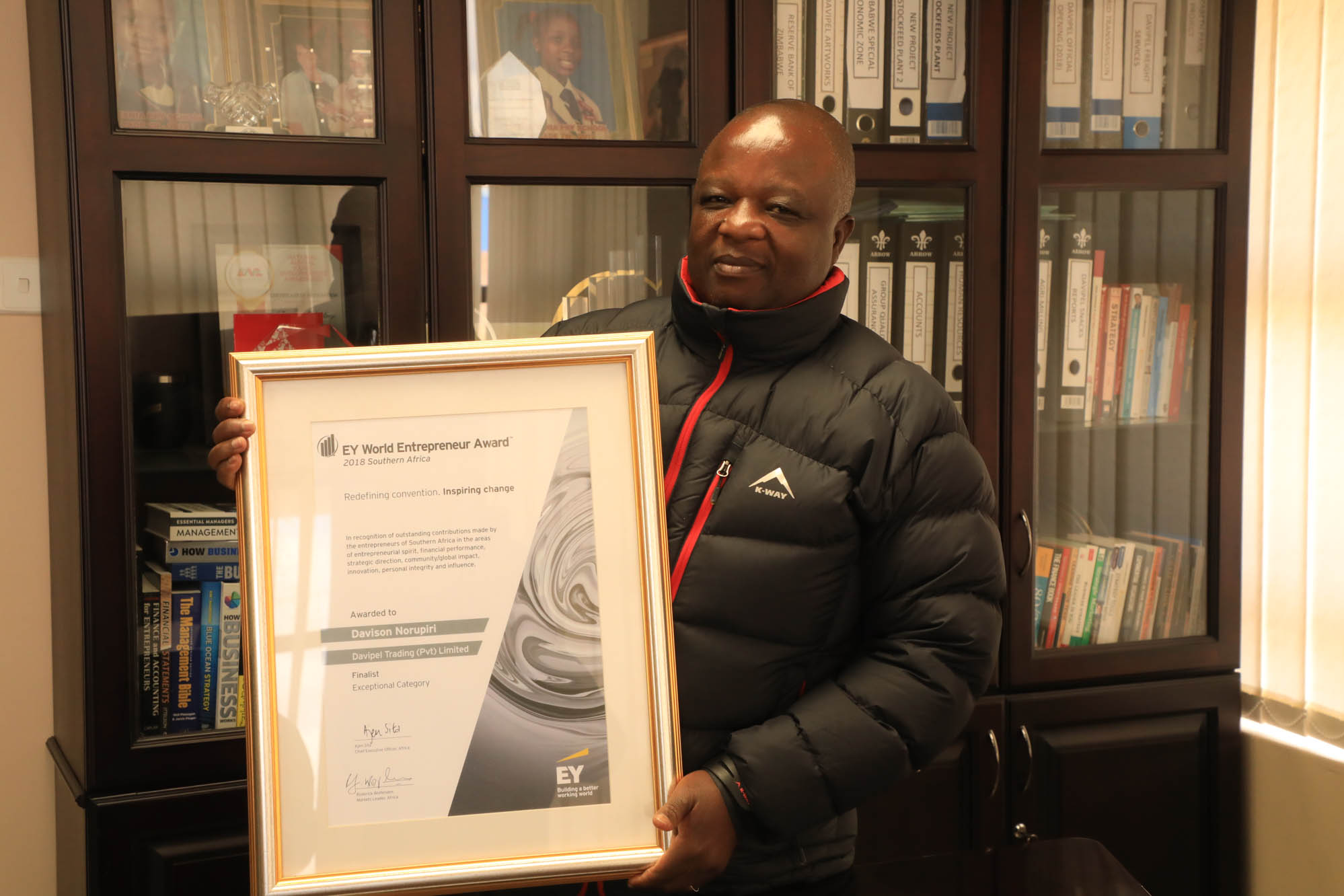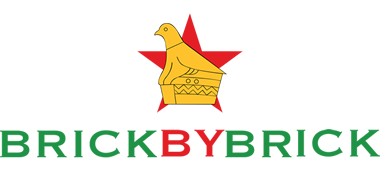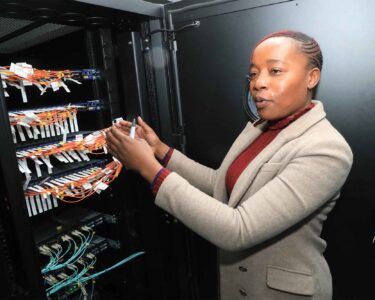It’s very possible that quite a number of Zimbabweans, Harare residents included, are not aware of the existence of an industrial park called Sunway City on the outskirts of the capital. Our Senior Correspondent, Garikai Mazara, recently went on a tour of Davipel Trading, a company specialising in the manufacture of snacks and was stunned by what he saw. Read on . . .
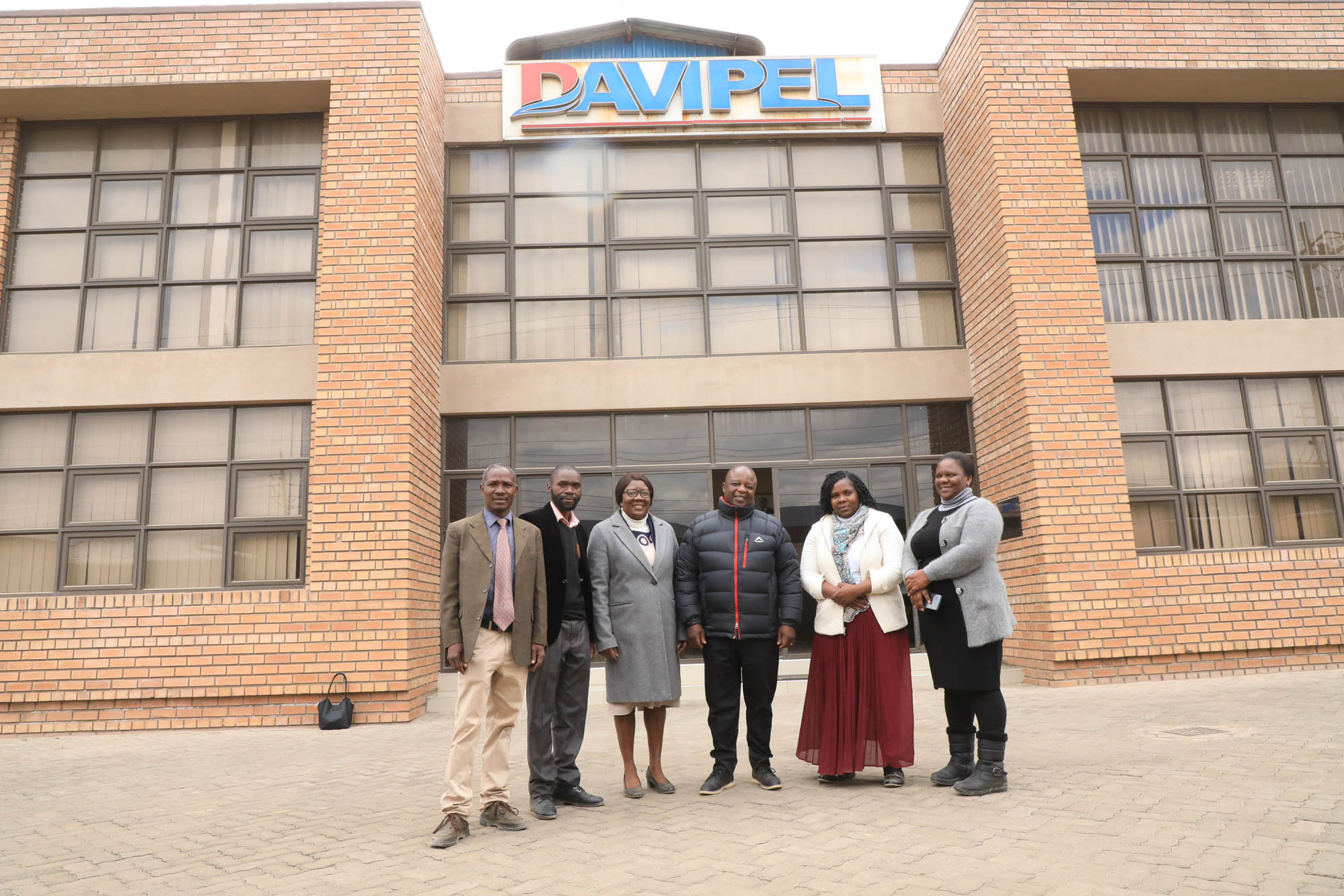
Sunway City is the sprawling mass of industrial land that lies parallel to Mutare Road, just after the Msasa Industrial Area and borders Ruwa to the east and Epworth to the south. It is also classified as a Special Economic Zone (SEZ).
According to Wikipedia, a Special Economic Zone is an area in a country that is designed to generate positive economic growth. Such an area is normally subject to different and more favourable economic regulations compared to other regions in the same country, including tax incentives and the opportunity to pay lower tariffs.
It takes approximately 30 minutes or less for a motorist to drive from Harare’s Central Business District to Sunway City, depending on the traffic volumes. But for Davison and Pelagia Norupiri, that half-an-hour journey has taken almost two decades as it started off with them shifting their bodies around a single room in Harare’s CBD.
The dream then was just to eke a living, to make the most of their circumstances.
“We started off as transport brokers. We got tenders from the big companies in Harare and then hired trucks and sub-contracted the jobs we were offered,” recalls Norupiri, the driving force behind Davipel Trading, now a leading agro-processing company with its premises in Sunway City.
The turning point for the couple, enthuses Norupiri, was when government announced the establishment of Special Economic Zones, of which Sunway City is one. “Davipel is a thriving business and this is so because we closely follow pronouncements by the government. That is where we pick the direction we going to take.”
But is has not been an easy ride, from that single room which measured a measly six-by-nine to the expansive operations that today is Davipel Trading, whose name is a combination of the power couple’s first names in their shortened form.
Snaking the patchy roads that traverse Sunway City, one gets the feeling that there is no light at the end of the tunnel. But these are roads that the Second Republic is intent on fixing, to improve trafficability which, in turn, will boost economic activity. (See interview with the Secretary for State for Provincial Affairs and Devolution for Harare Metropolitan Province, Tafadzwa Muguti, elsewhere in this edition, where he emphasises government’s commitment to fixing national and high priority roads.)

If it is not the rousing aroma from the myriad of flavours of the different snacks and pre-cooked porridge undergoing culinary enhancement that catches one’s nose upon arriving at the Davipel complex, then it has to be the imposing complex itself, sitting on approximately two hectares of land that catches the eye.
Just like Liverpool’s “This is Anfield”, which sends opposition players into knotty stomachs, the “Davipel” inscription is not only imposing, but looks back authoritatively at anyone casting their eyes on it. Hidden behind an equally imposing high wall, the casual passer-by might not be aware that behind those walls lie the dreams of husband and wife, dreams that resonate with those of a nation eyeing growth using its own resources.
“We use the government as our compass, as our barometer, because whatever they pronounce, we know that is where the wind is blowing. Take value addition, for instance, which the government has been emphasising in recent years. We have had to pick that up. The same with import substitution, which we have embraced wholly in a bid to reduce pressure on the national wallet.
“Some people take these pronouncements as political statements, but we take them seriously and that is why you find us here in the Special Economic Zone. These were pronounced through the Ministry of Industry and Commerce and a lot of businesspeople were hesitant to pick them up and we were one of the first to come here. I think PPC [Pretoria Portland Cement] was the only company operating from here [before our arrival].”
Typical of any company visit, a briefing is done beforehand, to achive some form of mental congruence between the briefing and the resultant tour. Any one eavesdropping on Norupiri’s pre-tour briefing, as he chronicles the road that Davipel has travelled, its current operations and its dreams for the future, can be forgiven for assuming that the company director is speaking of some delusional tasks achieved, tasks at hand or his plans for the future.
For instance: “We were importing maize grits which is the raw material for snacks. The whole country was getting maize grits from South Africa, spending more than US$10 million every year on such imports. Grits are used in the manufacture of cornflakes, cereals, clear beer, etc, so quite a number of companies were importing them.
“We felt this could not go on forever, so we went ahead and invested in a grit manufacturing plant, which was officially opened by His Excellency, President Emmerson Mnangagwa. As part of our value addition and beneficiation drive, instead of just snacks, we started manufacturing pre-cooked porridge, which was being imported as a finished product from South Africa previously.”
But this was not just empty talk as the resultant tour revealed. When Davipel let go the transport broking business, the nascent company’s signature product was the Jumbo snacks, which have since become the most sought-after snacks in the country.
“There were already several big-name brands on the market when we launched this cut-throat snacks business, but we are happy to say that we are now Zimbabwe’s leading snacks manufacturer and third largest in the region.
“The market leaders when we entered into the market included Cairns Foods, Innscor (with its hugely popular Zapnaks brand), Victoria Foods as well as quite a number of Asian-owned companies. Now we rule the roost. Our goal of import substitution was endorsed by the government which threw its weight behind us. This is because inasmuch as we are not earning foreign currency, we are not ‘exporting’ foreign currency, either.”
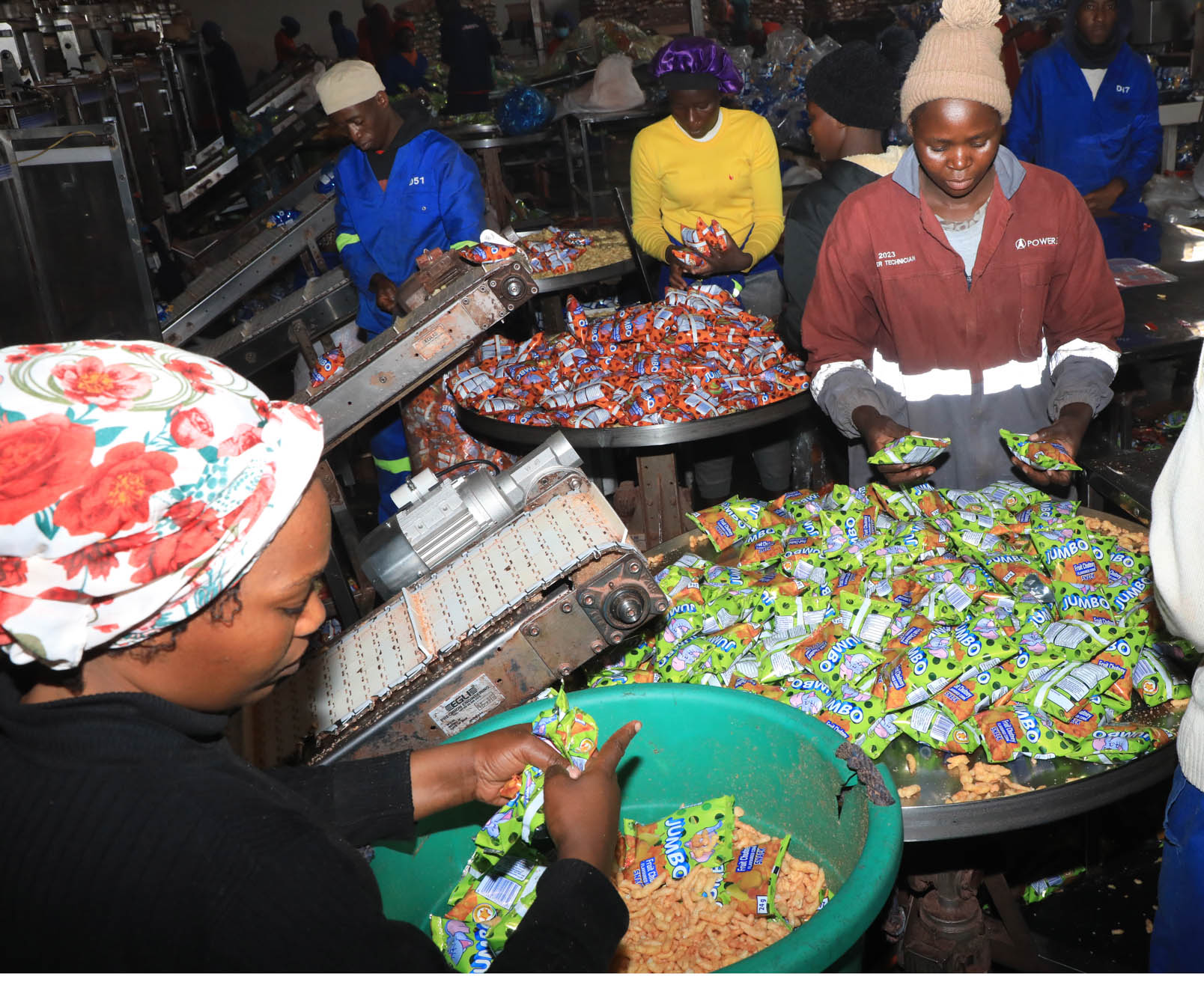
To that end, Davipel owns its own transport division with a fleet of 60 trucks that criss-cross the country daily delivering the snacks, pre-cooked porridge and mealie-meal. “You can see our original dream to be involved in logistics has not died,” chuckled Norupiri, adding: “In the past, we hired trucks from third parties, but now we have our own fleet — 60 trucks in all.”
While on face value, the manufacture of snacks might on the surface look like a simple exercise involving the roasting and popping of maize, it actually consumes 25,000 litres of cooking oil and 40 tonnes of maize grits per day. It, therefore, does not take rocket science to figure out just how much Davipel is contributing to the agro-processing ecosystem.
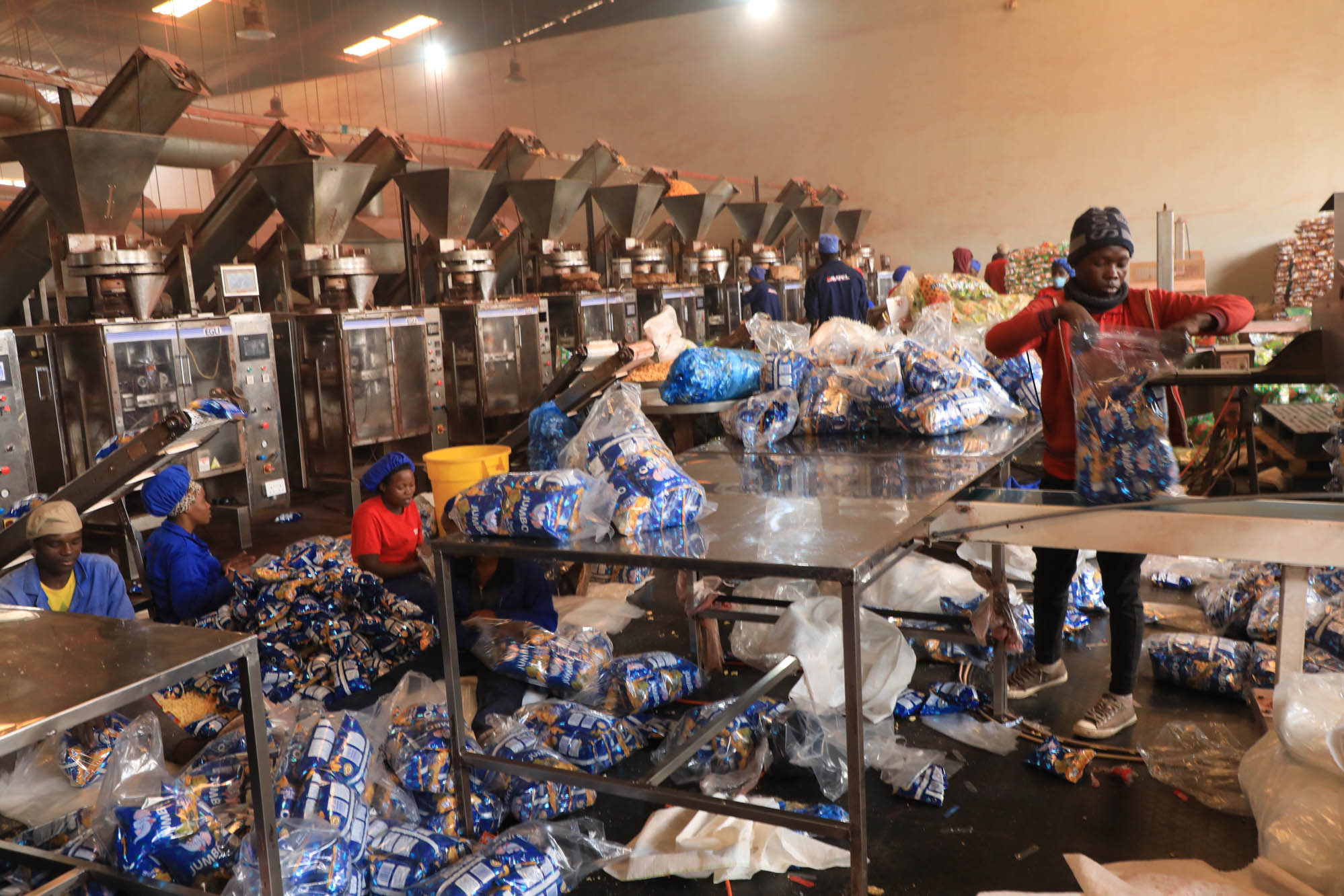
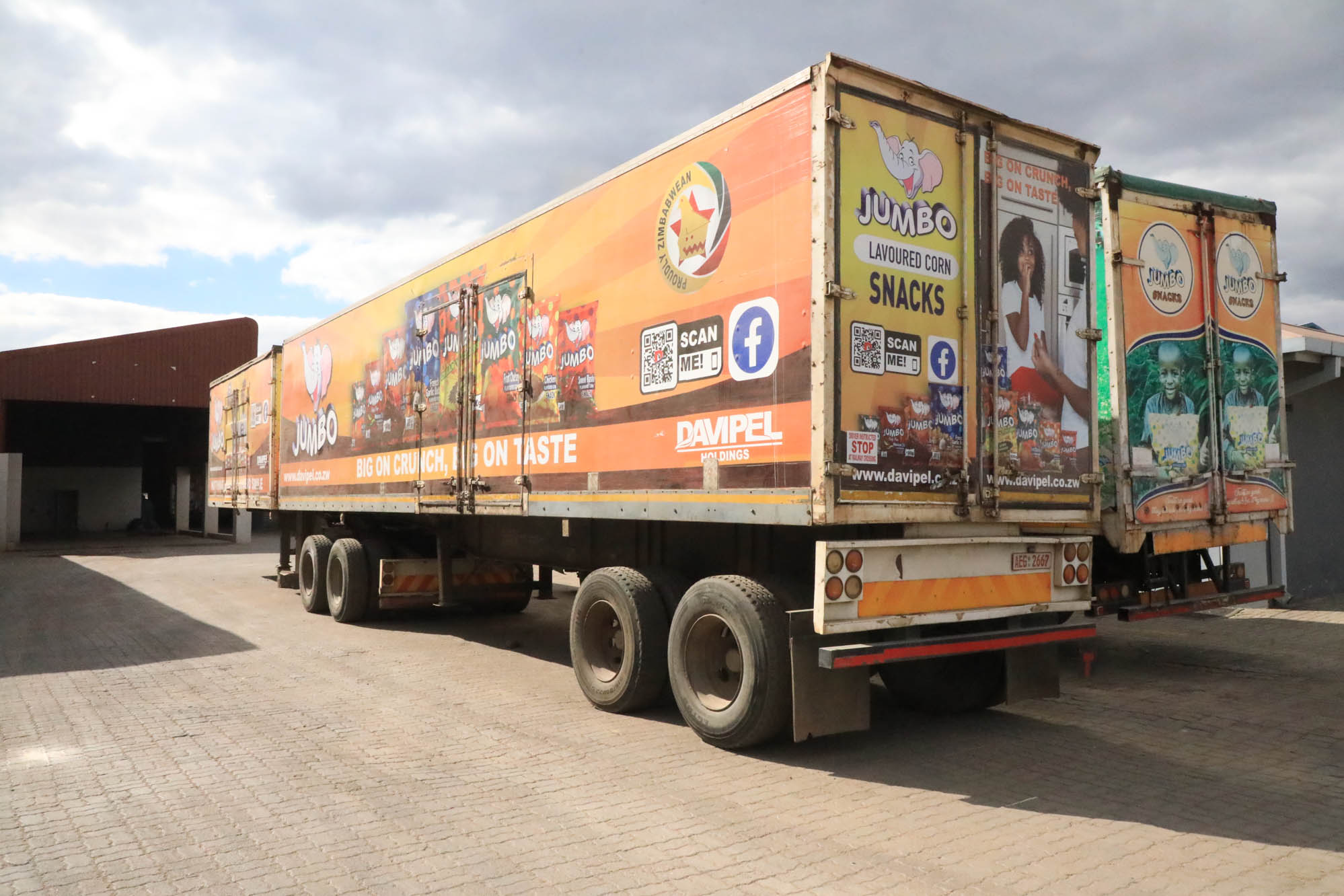
Adjacent to the snacks plant is the pre-cooked porridge factory, where a number of flavoured porridges are made. “Just like the snacks, pre-cooked porridge is a favourite with boarders mostly and we have a number of flavours like vanilla, banana and strawberry,” Norupiri told Brick by Brick.
Periods leading up to national elections are usually turbulent and uncertain as fortune-seekers and economic saboteurs take centre stage, situations which Davipel is very much alive to.
Says Norupiri: “A few weeks ago, when the foreign exchange was going the other direction, you could only see our Sunny products in the supermarkets. This was a deliberate strategy on our part because we could not afford to let the government down. We just kept on flooding the market with our products, at a time when almost everyone else was pulling out of the formal market. We cannot afford to ignore where we came from.”
Being the true patriot that he is, Norupiri added: “And as we are approaching elections, if one industry player flexes their muscle, the whole nation will feel it. To that end, we have invested in a stockfeeds manufacturing plant, which we expect to be officially opened by His Excellency, President Mnangagwa, as well.
“It is a state-of-the-art agro-processing mill, the second of its kind in Africa [the other is in Sudan]. We are currently in the middle of installing it and, barring any unforeseen challenges, we are set to commission it by December.”
Acquired from Turkey for about €3 million, with another €4 million to be consumed by civil, structural and electrical works, the 240-tonne-per-day plant will cement Davipel’s footprint in the agro-processing sector, where it already has a dominant presence. The three-year-old pellet-making plant produces about 80 tonnes per day, which is way below market expectations and company aspirations. Hence the investment into the new plant.
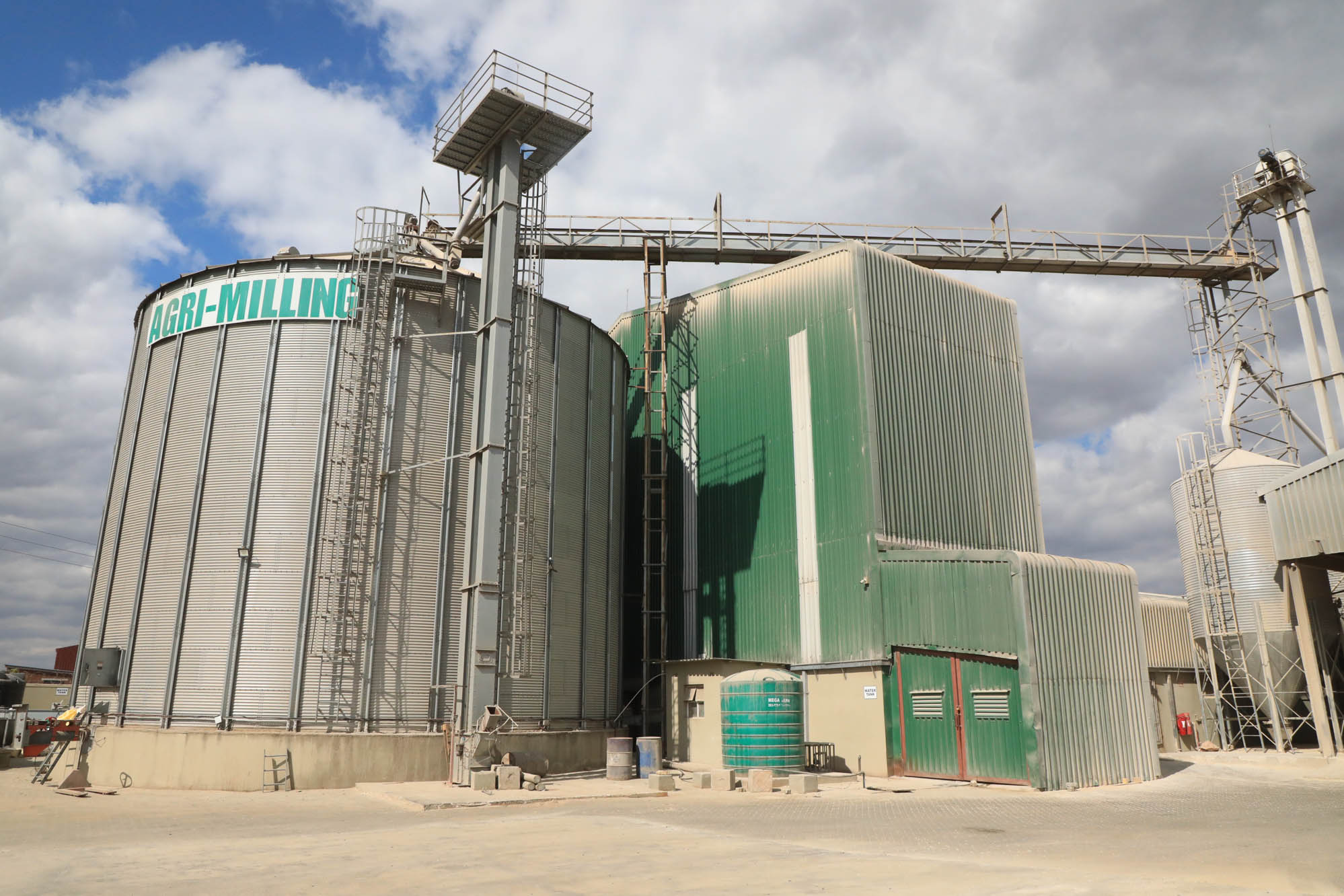
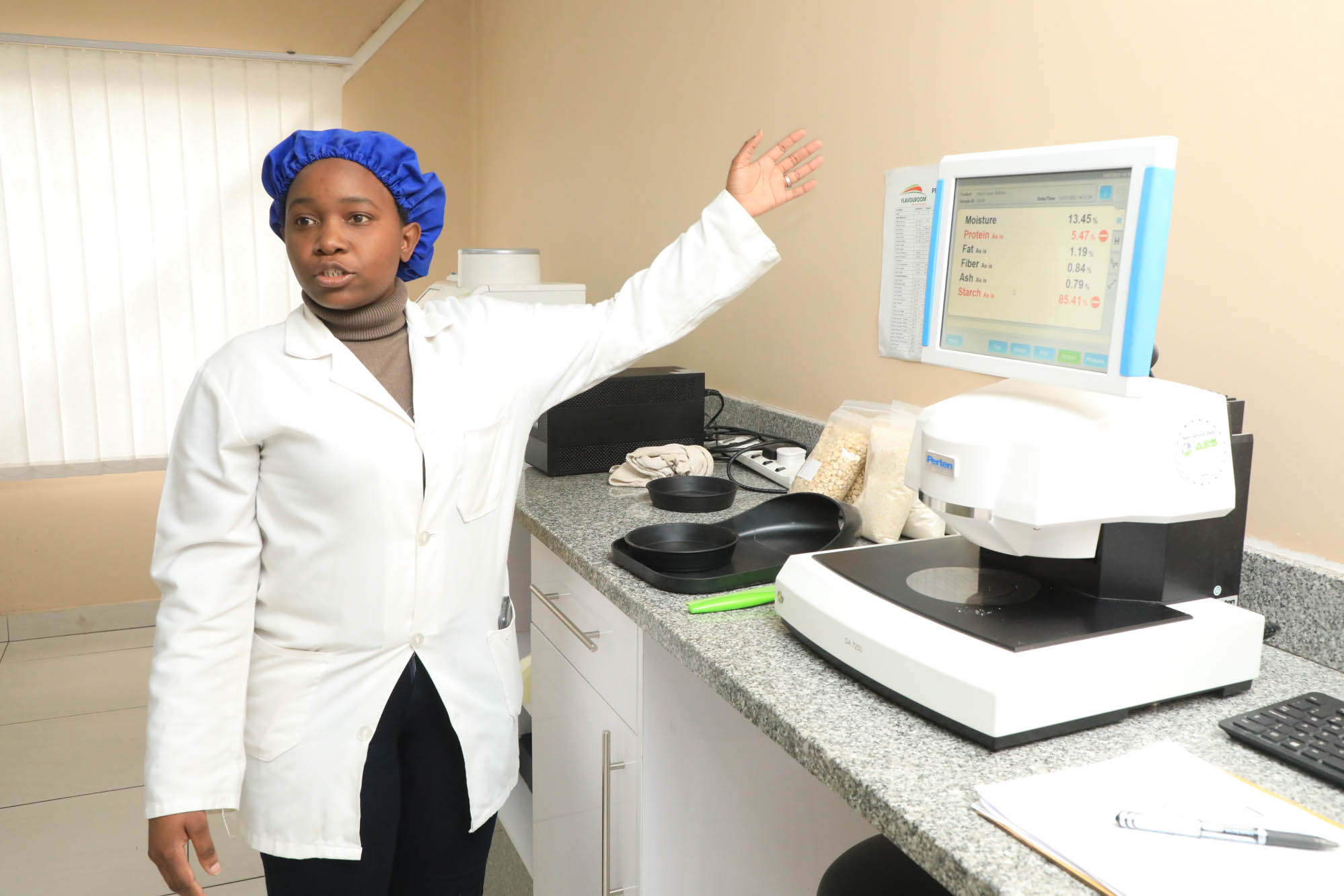
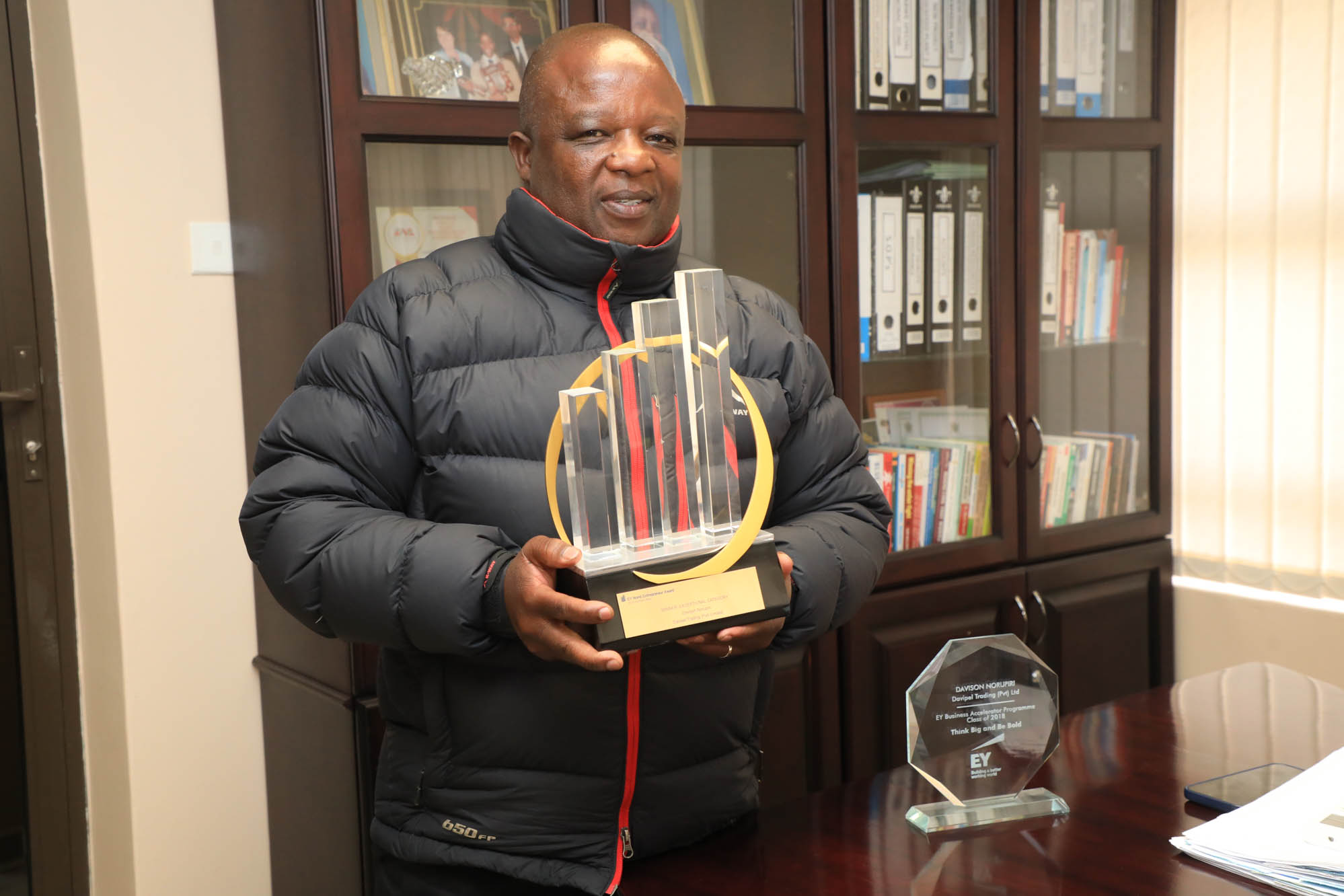
“This new plant will produce 10 tonnes of stockfeeds per hour, and since it will work 24/7, this means we are going to be churning out 240 tonnes of stockfeeds every day. This is high technology, the very latest in the world, and we have some Turkish engineers on-site working on the project.”
One of the objectives of the National Development Strategy 1 (NDS1) is to modernise the economy through the use of information and communication technologies and digital technology, an objective which Davipel is committed to fulfilling. “Occupying seven floors up and with a capacity of 240 tonnes per day, the plant is operated by one person, which means we are embracing technology.
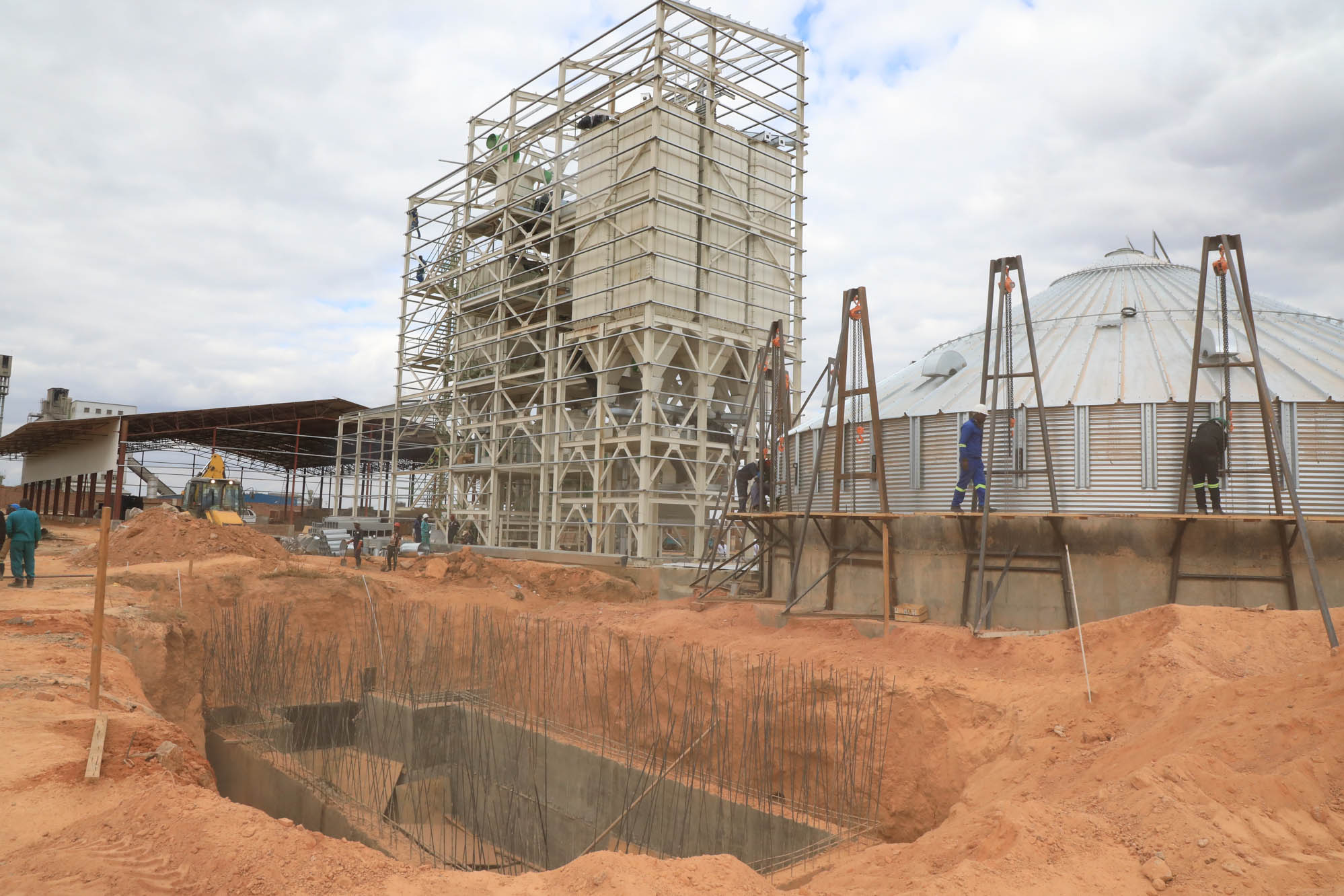
“The stockfeeds manufacturing sector is currently dominated by white players. Davipel is the first black or indigenous company to get into that sector and we will be sitting on number three or four. In food processing, we are one of the companies that is actually growing in this macro-economic environment, which is feeling the deleterious effects of sanctions imposed on our country by the West.
“I think one of the doctrines that has driven us this far is that while everyone else sees risk, we see opportunities. There is enormous scope and potential for growth in this country. All it takes is the right attitude,” noted the Davipel boss, who has taken to heart President Mnangagwa’s mantra of nyika inovakwa nevene vayo/ilizwe lakhiwa ngabanikazi labo.
